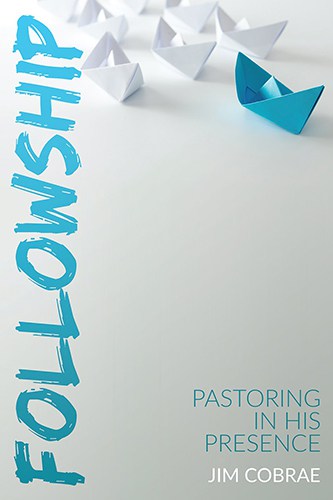Master’s Student
required reading
This module is for students interested in furthering their ministry training. Learn from veteran ministers and missionaries as they pour their hearts into these practical sessions. You will be presented with wisdom, knowledge, and Spirit-led insight ranging from how to prepare a sermon to how to minister in a relevant and godly way.
You will read significant works in Christian literature and must prove that you understand content of each book. Each report should prove that you have read the entire book and wrestled with each topic.
There are nine book reports required for a master’s degree. Please select nine from the list below.
Students Based in the US
The following books are included with your tuition. Shipping is covered. If you prefer to purchase these books on your own, you may.
International Students
For international students, you may cover the cost of shipping or you may purchase these ebooks, at your own expense, for the Amazon Kindle.

You may purchase digital versions of the books with the free Amazon Kindle app. It is available on IOS, Android, Mac, and PC. Links to purchase each book is listed by clicking on the amazon kindle icon.

PREREQUISITES
- Completion of the ISOM Core, which is the first five Trimesters ISOM has to offer.
- Completion of Bachelor’s degree, which includes five modules chosen.
- Completion of three modules.
REQUIReMENtS
- You must submit a book report for each of the nine books.
- Font: Times New Roman
- Font Size: 12 point
- Page Length: Each report must be five-pages (single-spaced) or ten-pages (double-spaced).
- Format: Microsoft Word (.doc or .docx), Google Docs (.doc or .docx), or PDF.
GRADING
You must pass 50% for each book to qualify for graduation.
RUBRIC
|
Factor |
Unsatisfactory 12 points |
Average 14 points |
Good 16 points |
Proficient 18 points |
Excellent 20 points |
|
Presentation (includes neatness, grammatical accuracy, visual composition) |
Poor grammar and spelling throughout the book report. |
Many grammar and spelling mistakes in the work. |
Few errors in grammar and spelling. |
Consistently good grammar and spelling throughout the book report. |
Excellent grammar and spelling throughout the work. |
|
Organization of Discussion |
Weak connections are made with the presented evidence. Inappropriate conclusions are determined. |
A few connections are made with links to evidence. Plausible conclusions are made. |
Some connections presented with substantiating evidence and appropriate conclusions presented. |
Many connections are made with links to evidence and subsequent plausible conclusions stated. |
An excellent amount of connections are presented with substantiating evidence, and firm, well-formed conclusions presented. |
|
Communication of Main Points |
A weak introductory paragraph with a poor progression of analysis. |
An average introductory paragraph with a fair progression of points in the book report. |
A good introductory paragraph with a progression of points. |
An excellent introductory paragraph with an understandable progression of analysis. |
A superior introductory paragraph with a clear progression of ideas in the book report. |
|
Source Citation |
Many incorrect or missing citations in the text of the book report and the citation section. |
Some incorrect or missing citations in the text and the citation section. |
Few incorrect or missing citations in the book report and the citation section. |
Good citations are found throughout the text and citation section. |
Excellent and thorough citations in the text of the book report and the citation section as well. |
|
Application to Personal Life |
Poor writing lacking an application of the book to the reader’s life. |
A fair analysis of how the book’s insights affect the reader. |
Good writing that shows an understanding of how the book’s contents can impact the reader’s life. |
An excellent analysis of how the book’s insights apply to the reader. |
Writing that shows an exceptional understanding of how this book’s contents apply to the reader’s life. |
SAMPLE BOOK REPORT
BOOK REPORT
Changed Into His Likeness
Watchman Nee’s Changed Into His Likeness looks at the lives of Abraham, Isaac, and Jacob. This examination is done in light of 1 Corinthians 10:11, which states, “Now all these things happened to them as examples, and they were written for our admonition, upon whom the ends of the ages have come.” Nee states, “This book will show the kind of experience we must acquire before we can become the people of God.”
The first lesson we need to learn, Nee asserts, is that “we can do nothing and that everything depends on God. He is the Father, and He is the Initiator of everything.” Abraham was a man without a Living God and without an heir. In Genesis 17:5, the Lord changed his name to Abraham, declaring, “I have made you a father of many nations.” Interestingly, God required Abraham to leave the land of his earthly father and to submit to His Heavenly Father before He had an heir. “Abraham could not initiate anything,” Nee observes—not his move, not his name change, and not even the conception of his son.
Strict dependence on God helped Abraham to understand God as the Father. This type of knowledge is not doctrine, Nee argues, but rather “a knowledge in which one is brought to the point of confessing, ‘God, I am not the source. You are the source of everything, and You are my source. Without You, I cannot have a beginning.”
The second lesson we learn is from Isaac. It is that everything comes from the Father. “Isaac’s whole life,” Nee asserts, “was an enjoyment of his father’s inheritance.” Isaac did not have to take the step of faith his father Abraham did. Isaac did not need his name changed. He was not a pioneer. “It is true that Isaac dug a few wells,” Nee concedes. “But even the wells were first dug by his father.”
Some Christians are unsuccessful because they have not learned to view God as Father, as Abraham did. Others do not understand, as Isaac comprehended, “that we are sons and that everything we have is from Him…In the eyes of God, we are only those who receive.” In the end, Nee maintains, “The principle of receiving is the principle of Isaac.”
The third lesson we need to learn comes from Jacob. We have to allow the Lord to rid us of the activity of the flesh, the power of the soul, and the natural life. “We know doctrinally that God is the Initiator of everything,” Nee explains, “yet, in reality, we initiate many things…We behave this way because Jacob is still present within us.” We continue to rely on our own cleverness and scheming ways.
We learn from Jacob, Nee maintains, “a type of the discipline of the Holy Spirit. We see a crafty person who was filled with schemes and deceits. But at the same time, we see a person whom the Holy Spirit disciplined step by step.” God transformed Jacob, as he needed to be changed. Paul writes in 2 Corinthians 1:12, “For our boasting is this: the testimony of our conscience that we conducted ourselves in the world in simplicity and godly sincerity, not with fleshly wisdom but the grace of God, and more abundantly toward you.”
According to Nee, “Abraham is the starting point in God’s plan of redemption and in His work of recovery.” Paul calls Abraham, “the father of us all” (Rom. 4:16). Now, there were Godly men before Abraham—Abel, Enoch, and Noah among them. Nee puts forth, though, that Abraham’s calling was very different from these men:
When God gained Abel, He only gained Abel. When God gained Enoch, He only
gained Enoch. When God gained Noah, He only gained Noah. But when God chose
Abraham, He did not gain just Abraham. When Abraham was called, God told him
clearly why he was called. God told him to leave his country, his kindred, and his
father’s house and to go into the land of Canaan: He promised to make him a great
nation in whom all the families of the earth would be blessed (Gen. 12:1-3). In other
words, the calling and choosing of Abraham was for the purpose of recovering a sinful
situation; it was not for Abraham alone as an individual.
“God’s eternal purpose and His plan,” Nee asserts, “are joined to the men He has chosen. The standing or failure of God’s chosen men determines the success or failure of God’s purpose and plan.” Abraham, Nee maintains, had to face such difficult situations and experience extremely wonderful victories so that he then could give out to others what he had received from the Lord. Nee writes:
We know that all spiritual works are based on the principle of begetting, not on the
principles of preaching…God’s way of recovery requires men to believe…What did
God do? First He brought one man to the point of believing so that he would be a
believer; from this believer many more believers were begotten.
Abraham had two callings to follow God. In Joshua 24, we learn that Abraham, the father of faith, originally was born into a family that worshipped idols. Stephen explains in Acts 7:1-4:
The God of glory appeared to our father Abraham when he was in Mesopotamia,
before he dwelt in Haran, and said to him, ‘Get out of your country and from your
relatives, and come to a land that I will show you.’ Then he came out of the land of the
Chaldeans and dwelt in Haran. And from there, when his father was dead, He moved
him to this land in which you now dwell.
Abraham was called to leave his nation, his countrymen, and his father’s house. His faith was not yet great, however, because, although his left his country, he took his kindred with him! It also does not appear that Abraham led his family to obedience in God at that time. In Genesis 11:31, the Bible records:
And Terah took his son Abram and his grandson Lot, the son of Haran, and his
daughter-in-law Sarai, his son Abram’s wife, and they went out with them from Ur
of the Chaldeans to go to the land of Canaan; and they came to Haran and dwelt
there.
“This then, was the first expression of Abraham’s faith,” Nee explains, “He was not much better than we.” He obeyed the Lord only partially, reaching Haran instead of going all the way to Canaan. It was a difficult time for Abraham, Nee asserts. “His days in Haran were wasted days, delayed days, and useless days.” Terah then died in Haran.
Fortunately, God has an abundance of patience. Once again, in Genesis 12:1–3, He calls Abraham:
Get out of your country, from your family and from your father’s house, to a land
that I will show you. I will make you a great nation; I will bless you and make
your name great; and you shall be a blessing. I will bless those who bless you,
and I will curse him who curses you; and in you all the families of the earth
shall be blessed.
Abraham again showed partial obedience. He journeyed all the way to Canaan, yet he took with him Lot, in spite of being told to get away from his family.
In Canaan, however, Abraham faced three crucial tests. He did not yet realize the value of the land God was giving him. The Lord had said to Abraham, “To your descendents I will give this land” (Genesis 12:7). Even after this pronouncement, Abraham journeyed south toward Egypt because of the famine in the land. He did not pass his first test. However, Abraham now understood more. “After his failure in Egypt,” Nee writes, “Abraham learned one lesson: He realized the importance of Canaan and knew that it was wrong to lie or deceive.”
Abraham did much better on his second and third tests in Canaan. When it came time to divide the land between himself and his nephew, Lot, Abraham allowed Lot to choose. “He did not,” Nee observes, “try to preserve anything with his own strength.” During the third test, when Lot was kidnapped, Abraham began to move into the fullness of his calling. He fought against the enemy and recovered everything. Abraham refused to share in any of the spoils, however, so that no one could say that Abraham had been made rich outside of the Lord’s Hand.
Isaac lived a much different life than his father Abraham. According to Nee, “Unlike Abraham, who did many things which had never been done before, Isaac only did what others had already accomplished.” Isaac stayed obedient to his father, even submitting to his near-sacrifice. When his mother died, Abraham acted to provide comfort by getting him a wife—Isaac did not do the seeking. He had two sons, just as his father had. Isaac went down to Gerar when famine struck, like Abraham had left his land when the crops failed. Both men even lied and said that their wives were their sisters! Even when he re-dug the wells the Philistines had covered, Isaac called them by the same names given to them by Abraham.
Isaac had a far easier life than his father Abraham. “Throughout his entire life,” Nee contends, “everything he had was a matter of enjoyment and receiving. What does it mean to know the God of Isaac? Knowing the God of Isaac means only one thing: knowing God as the Supplier and that everything comes from Him.”
Isaac’s example for us, Nee asserts, is “the Christian life, the overcoming life of freedom and sanctification, is obtained and not attained.” What a relief to know that we do not have to strive daily for every victory! In addition, Nee points out that Isaac’s obedience to his father is a strong lesson for us. “This life spontaneously does what God wants us to do,” Nee stresses, “it does not force us to do anything. At the same time, this life turns away from things that God does not want us to do.
Jacob’s life, however, was quite different from that of his father Isaac. “Everything that occurred in Isaac’s life worked for him,” Nee observes. “Even when he encountered opposition, it was easily overcome. But most of Jacob’s experiences were painful ones.” Jacob’s history was full of tribulations, many of them caused by Jacob himself.
Jacob had a nature very unlike his father Isaac’s. According to Nee, “Jacob was a wicked and crafty person. He was calculating and clever; he could and would do anything.” In spite of his obvious character flaws, however, the Lord chose Jacob. “Therefore,” Nee exhorts, “we have to learn to trust in God’s selection.”
Unfortunately, Jacob had a history of deception. He stole his brother Esau’s birthright by demanding it in exchange for a bowl of lentil soup. Jacob conspired with Rebekah to receive Isaac’s blessing through trickery. As his life progressed, however, Jacob was deceived. Laban gave him Leah in marriage first, then made him serve an additional seven years for Rachel. The Lord was molding Jacob by making him reap what he had sown.
Eventually, God dealt a very decisive blow to Jacob’s pride and self-reliance. At Peniel, the Lord met him and wrestled with him. “It was the place,” Nee maintains, “where Jacob’s fleshly life was exhausted and dealt with.” In this is a lesson for all of us Christians. According to Nee, “Those who have passed through God’s dealings know the difference between natural strength and spiritual power. After a person’s natural strength is fully stripped, he will be afraid of the resurgence of his natural strength whenever he works for the Lord.”
In Changed Into His Likeness, we better understand the examples of Abraham, Isaac, and Jacob. Abraham teaches us how to look to the Father for everything, trusting Him as the Initiator, and then becoming a “begetter” ourselves. Isaac is an example of living life as a son in enjoyment and provision, while exhibiting a high degree of obedience to the Father. Jacob, meanwhile, shows us how God desires to strip our natural powers so that we can live in full dependence on the Holy Spirit—and obtain the territory that God has promised us.














